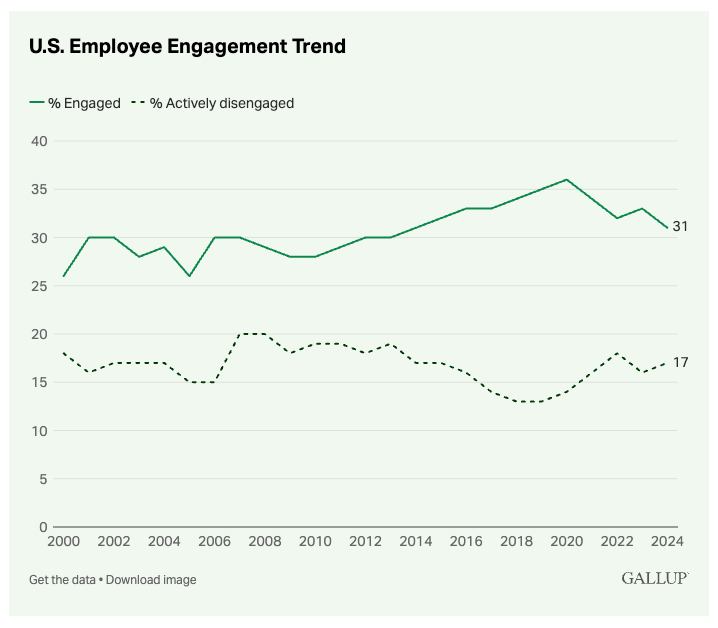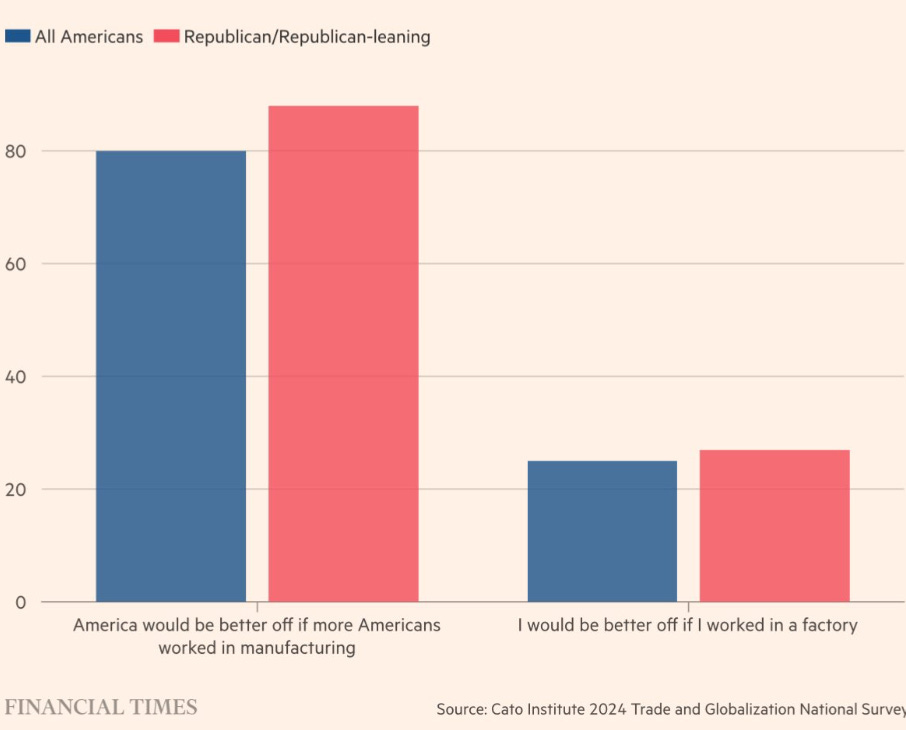The Struggle of Memory
Milan Kundera | Engagement Down | Women at Work - Part 1 | Elsewhere: Growing Resilient, Growing Wilder

The struggle of man against power is the struggle of memory against forgetting.
| Milan Kundera
…
What are we to remember in the struggle against power? How to leverage remembering as a force?
In times like we are living in — the ‘off normal’, where normalcy itself seems foreign, or lost — memory itself seems to fail.
It’s hard, if not impossible, to retain the memory of progress, when those in power are intent on unmaking what had come before, that great sedimentary grounding of our common sense of forward movement.
As Anne Lowenhaupt Tsing wrote, in a slightly different context,
Progress felt great; there was always something better ahead. Progress gave us the “progressive” political causes with which I grew up. I hardly know how to think about justice without progress. The problem is that progress stopped making sense.
Please consider a paid subscription to support the work here at workfutures.io.
I love that you are reading this, but I confess I love sponsors more.
Engagement Down
Gallup offers up sobering numbers: ‘Employee engagement in the U.S. fell to its lowest level in a decade in 2024, with only 31% of employees engaged. This matches the figure last seen in 2014. The percentage of actively disengaged employees, at 17%, also reflects 2014 levels.’
US business is not making progress in engagement; in fact, they are going retrograde.
Gallup notes;
Each point change in engagement represents approximately 1.6 million full- or part-time employees in the U.S. The declines since 2020 equate to about 8 million fewer engaged employees, including 3.2 million fewer compared to 2023.
Considering that engagement reached a high of 36% in 2020, just over one-third of the surveyed workforce, you’d be crazy if you thought business leaders were actively pursuing higher engagement.
Imagine if car companies only achieved 36% reliability in vehicles driving off the lot, if a cheese maker had to reject 70% of its Gouda every day, or if a financial services firm lost two-thirds of its customers every year. Companies instead invest heavily to make those number better.
Oh, yes, they give lip service to engagement — they offer training, use engagement software, etc. — but clearly, whatever they’re doing ain’t working.
But, after looking at the numbers, do they try something else, some real break with the ineffective practices that have been around forever? Clearly they’re not. Or even if they do, those ‘new’ practices are ineffective too.
Of course, there are some companies that score higher than the mean, and they may be doing something different. But if so, whatever it might be isn’t spreading across the working world like, for example, AI.
And to the extent that AI has been adopted — at least by the end of 2024 — it is not increasing employee engagement. Perhaps the downturn at the end of 2024 is in part caused by the spread of AI as a new destabilizing factor at work.
Gallup has identified some generalized trends impacting engagement:
rapid organizational change
challenges from hybrid and remote work transitions
new customer and employee expectations
broken performance management practices
A list of things that management is unwilling to fix, apparently. For at least the last decade.
Women at Work - Part 1
I’m adding a section to workfutures.io for at least a few episodes, curating voices far and wide on the state of women in the workplace.
No Way Out
Back in 2018, Ephrat Livni wrote one of the smartest attacks on the double and triple binds that suffocate women in the workplace, in All career advice for women is a form of gaslighting [emphasis mine]:
If you're a working woman, you've likely been inundated with advice about how to ensure that gender double standards don't impede your brilliant career. Assert yourself boldly at meetings in an appropriately low tone of voice, yet purr pleasingly when negotiating salary. Be smart but never superior, a team player though not a pushover, ever-effective yet not intimidatingly intellectual. Calibrate ambition correctly, so that none are offended by your sense of self-worth, but all seek to reward your value. Dress the part.
Inevitably, even in the most allegedly enlightened workplaces, women contend with subtle biases. And so the fairer sex gets the message that we can't just work. We must also contort and twist and try not to seem bitchy as we lean in.
But the obstacles that come with working in a sexist culture are beyond any individual's control. And so advocating a do-it-yourself approach to on-the-job equality may actually be a kind of gaslighting---just one more way for institutions to deflect blame and make women question themselves and doubt their sanity. It's the society we operate in that needs fixing, not how we ask for money, the tone of our voices, or our outfits.
Livni’s conclusion is that there is no way out for women:
In fact, research by Duke University department of neuroscience professors Grainne Fitzsimons, Aaron Kay, and Jae Yun Kim, to be published in the Journal of Personality and Social Psychology, shows that overemphasizing messages of individual female empowerment diminishes people's sense of systemic obstacles that require societal redress. It puts major historic problems on the shoulders of individuals, who are actually minor players, they write in the Harvard Business Review.
Empowerment advice for women provides an "illusion of control" that's not realistic, the researchers say. The advice may be good insofar as it gives us hope, but it fails to recognize larger, much more powerful forces at work, like a long history of discrimination and patriarchy.
"We suspected that by arguing that women can solve the problem themselves, advocates of the 'DIY' approach may imply that women shouldbe the ones to solve it---that it is their responsibility to do so," they write. "We also hypothesized that this message could risk leading people to another, potentially dangerous conclusion: that women have caused their own under-representation."
[...]
The Duke University researchers argue that their findings on DIY equality should worry anyone who believes we need structural and societal change to improve the workplace. "[T]he more we talk about women leaning in, the more likely people are to hold women responsible, both for causing inequality, and for fixing it," they write.
Elsewhere
Growing Resilient, Growing Wilder
Over at stoweboyd.io, I reposted The Ecology of Work: Growing Resilient, Growing Wilder, subtitled ‘the need for self-willed organizations’.
Instead of seeking to make the company into the leanest possible linear system -- a strategy of reduction -- leaders could instead aspire to looser, wider connections across the company, and an intentional diminishing of downward control. These are the hallmarks of deep resilience.
…
Good for others, not for me.
Here’s one of the glaring flaws in Trump’s reindustrialization policy: there is no mass movement in the US clamoring for more manufacturing. There’s soft support when people are asked very general questions about it, but when asked if they themselves want to work in a factory, not so much.
Premium materials on Women at Work below the paywall for sponsors only.
Keep reading with a 7-day free trial
Subscribe to Work Futures to keep reading this post and get 7 days of free access to the full post archives.




